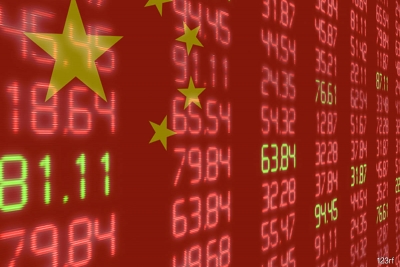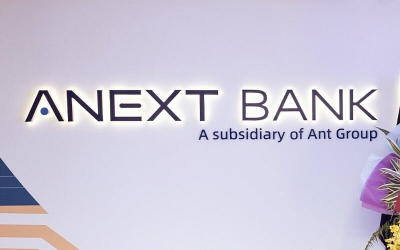Latest Insight
- Why an expected APAC fintech consolidation wave has yet to come
- Why cash is still prevalent in Asia
- Japan steps up green finance efforts
- South Korea charts middle path on crypto
- Should Grab and GoTo merge?
- Singapore pushes ahead with fintech-driven sustainability
- Digital banks in South Korea continue to thrive
- Billease is the rare profitable BNPL firm
- Fintech sector in Pakistan faces mounting challenges
- Where digital banks in Asia can make a difference
Latest Reports
-
Breaking Borders
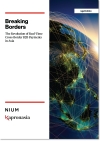 Despite progress in payment systems, the absence of a unified, cross-border Real-Time Payments (RTP) network means that intermediaries play a crucial role in facilitating connectivity. This report examines the ongoing complexities, challenges, and initiatives in creating a seamless payment landscape across Asia. Innovate to Elevate
Despite progress in payment systems, the absence of a unified, cross-border Real-Time Payments (RTP) network means that intermediaries play a crucial role in facilitating connectivity. This report examines the ongoing complexities, challenges, and initiatives in creating a seamless payment landscape across Asia. Innovate to Elevate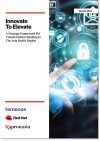 In the dynamic and diverse financial landscape of the Asia-Pacific (APAC) region, banks are at a pivotal juncture, facing the twin imperatives of innovation and resilience to meet evolving consumer expectations and navigate digital disruption. Catalyzing Wealth Management In The Modern Era
In the dynamic and diverse financial landscape of the Asia-Pacific (APAC) region, banks are at a pivotal juncture, facing the twin imperatives of innovation and resilience to meet evolving consumer expectations and navigate digital disruption. Catalyzing Wealth Management In The Modern Era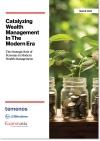 Hyper-personalized wealth management presents a paradigm shift from traditional models relying on static, generalized segments. Developing tailored investor personas based on psychographics, behaviours and fluid financial goals enables financial institutions to deliver rich and tailored customer experiences that resonate with next-generation priorities.
Hyper-personalized wealth management presents a paradigm shift from traditional models relying on static, generalized segments. Developing tailored investor personas based on psychographics, behaviours and fluid financial goals enables financial institutions to deliver rich and tailored customer experiences that resonate with next-generation priorities.
Events
| October 21, 2024 - October 24, 2024 Sibos Beijing |
| November 06, 2024 - November 08, 2024 Singapore Fintech Festival |
China has been cracking down on fintech in one form or another since September 2017 when it set out to clip the wings of its then flourishing cryptocurrency industry. Next up on the chopping block was peer-to-peer (P2P) lending. Both industries are shells of their former selves, which suits Beijing just fine given their risk profiles. However, the crackdown on China’s systemically important tech companies has had ripple effects in the broader economy and China’s leadership recently signaled that a change of direction may be near.
During China’s long tech boom, private investors availed themselves of the abundant opportunities afforded by Chinese IPOs, whether onshore, in Hong Kong or in New York. Yet with Beijing’s crackdown on the tech sector and persistent U.S.-China tensions, Chinese IPOs are going in a very different direction.
2022 is turning out to be the year that Asia’s super apps must swallow their pride. For Korea’s Kakao, whose digital bank became the country’s most valuable lender following its IPO in August 2021, the fall from grace has been swift and painful. Both Kakao Bank and the company’s payments arm Kakao Pay have struggled with falling market capitalizations since late 2021, while a scandal in which Kakao Pay executives swiftly sold off their shares in the company after the IPO undermined public trust in the Kakao brand. Ant Group’s decision to reduce Alipay's stake in Kakao Pay has dealt another blow to the Korean platform company.
Chinese fintech giant Ant Group announced the soft launch of its Singapore digital bank ANEXT with fanfare earlier this month. The announcement came nearly three years after the Monetary Authority of Singapore (MAS) said it would issue up to five digital banking licenses. Now that ANEXT has finally gone live, it is worth assessing its prospects. The bank holds a digital wholesale banking (DWB) license, which allows it to serve non-retail customers only. ANEXT plans to develop an open framework for financial institutions together with MAS-backed Proxtera, a hub connecting B2B marketplaces, trade associations and service providers. While Ant has high hopes for ANEXT’s potential to serve SMEs in Singapore, it is likely to face some significant challenges in the city-state’s ultra-competitive financial services market.
Asia’s platform companies had a great run, but amid a shaky global economy they have no choice but to make substantive changes to their business models. For most of these companies, the biggest problem is that they do not make enough money to offset their costs. Until very recently their primary focus was on user numbers rather than profitability. Indonesia’s GoTo, despite some strong fundamentals working in its favor, probably will have to undergo a painful transition if it expects to thrive in the long term.
While digital banks are all too often hyped, in the Philippines’ case online lenders truly have a large market opportunity. Incumbents have limited reach and there is a large unbanked population, estimated at 47% of adults (31.5 million people) as of early 2021 by Bangko Sentral ng Pilipinas (BSP), the Philippine central bank. Of the 53% with bank accounts, there is undoubtedly a considerable underbanked population. The Philippine digibank Tonik reckons that the country’s retail savings market is valued at up to US$140 billion and its unsecured consumer lending market at US$100 billion.
Internationalization of the renminbi has taken a different path than what seemed likely when the process began in the early 2010s. At the time, many observers expected China would gradually open its capital account and allow its currency to float freely. These steps were seen as integral for China to achieve a commensurate status in the international financial system that it already enjoys in the global economy. Yet political considerations have increasingly outweighed financial ones, and renminbi internationalization is instead evolving inside a less open ecosystem than expected.
In August 2021, The Bangkok Post ran an article entitled “Thailand ripe for a digital banking battle” that captured the conventional wisdom about the prospects for online lenders in the kingdom, which is that there is a significant market opportunity for them due to lagging digitization among incumbents rather than the existence of a significant unbanked population. About 82% of Thais have a bank account, though by one estimate 48% of the population is underserved. Yet the opportunity for digital banks could be shrinking as big traditional lenders accelerate digital transformation and the government introduces real-time retail payments possible with only a mobile number.
The digitization of financial services in Taiwan has dovetailed with rising online scams, but compared with many other economies, Taiwan did not experience a surge in such illicit activity for most of the pandemic. The reason is that Taiwan adhered to a de facto zero-Covid policy that kept infections down for more than two years. It was only in the past few months when the hyper-infectious omicron variant penetrated Taiwan’s defenses amid a wobbly global macroeconomic environment that online financial crime began to skyrocket.
Slowly but surely, peer-to-peer (P2P) lending is becoming a sustainable and regulated industry in Indonesia. A recent regulatory crackdown aimed at consolidating the sector into a smaller number of compliant, above-board firms has borne fruit. Unlike China, Indonesia has decided that P2P lending can serve a legitimate financial inclusion role. Having the benefit of hindsight, Jakarta moved to proactively regulate P2P lending.
More...
Hong Kong’s virtual banks arrived at a tumultuous time in the city, facing the twin challenges of political tumult and Covid-19. However, the pandemic may have helped spur greater uptake of the online lenders’ services, especially now that Hong Kong has experienced a more severe Covid wave. Important questions remain though: How big is the opportunity in a city of 7. 4 million where 93% of people over 14 have a bank account? And is it realistic to assume that expansion to the mainland will be possible?
It is a testament to the difficulty of establishing a viable international financial center in Asia that so many first-tier cities in the region are vying to compete with Hong Kong yet none is truly a peer competitor. Even Singapore, undoubtedly the most important fintech hub in Southeast Asia if not the entire region, cannot match Hong Kong in the capital markets space. Seoul is the latest Asian city to throw its hat in the ring to become a global financial center.
On April 29, Bank Negara Malaysia (BNM) awarded digital banking licenses to five consortia primarily led by large tech firms and incumbent financial institutions. The one exception was a consortium that includes Grab and Singtel and is co-led by Kuok Brothers, a massive conglomerate that focuses on real estate, shipping and agribusiness, among other things.
Indonesia’s digibanking sector continues to be among the busiest in Asia Pacific with a flurry of deals in recent weeks. Key deals include buy now pay later (BNPL) firm FinAccel’s purchase of a majority stake in PT Bank Bisnis Internasional and SME financing platform Funding Societies and used car marketplace Carro investing an undisclosed amount in Bank Index Selindo (Bank Index). Indonesian peer-to-peer lender Amartha is also reportedly in talks to acquire 70% of local bank PT Bank Victoria Syariah.
We would say that the gravy train has been derailed for Australia’s cash-incinerating buy now, pay later (BNPL) firms, but they may not be exactly right. After all, “gravy train” implies making easy money and most of these companies never made money in the first place – if our key metric is profitability. The problems for these firms are manifest, from intense competition – and especially the arrival of deep-pocketed incumbents and tech firms to the market – to looming regulation and widening losses.


